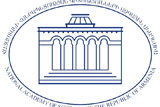| ||||||||
In 1988 the highest legislative body of the Nagorno-Karabakh Autonomous Region, the Regional Council exercised self-determination and decided to join the Armenian Soviet Socialist Republic. The objective of this decision was the desire of its people to live and create freely in their historic homeland, preserving their national identity. Being a subject of Soviet Azerbaijan, the Armenian population of Artsakh was very limited in its ability to create, and it was controlled through various methods of political suppression. Throughout the period when it was within the territory of Azerbaijan, the Armenian population of the enclave would emigrate, and the enclave was being populated with ethnic Azeri’s. Although the will and desire of Artsakh population to join Armenia was punished, this same had been repeatedly expressed several times during the past century, through applications to the USSR authorities, collective letters, and so on. The USSR policy shift on "Perestroika" offered new hope in this regard. In 1988, the Armenians of Artsakh manifested their dream by exercising their constitutional right to a referendum. In response to the constitutional aspirations of the Armenians, the Azerbaijani authorities used the tried and tested method of intimidation – they organized the massacres and deportations of the ethnic Armenians of Azerbaijan. Undergoing "Perestroika", the Soviet Union failed to master the basics of integrating into universal human development. The actions by the authorities of Azerbaijan did not lead to any quick political or legal repercussions. At the end of 1991, when the Soviet Union was collapsing, the Armenians of Artsakh were left face-to-face with multi-layered, mostly chauvinistic armed groups from Azerbaijan. In 1992-93, the Armenians in Artsakh were in a difficult blockade but managed to make a supreme effort and came together to resist the armed groups that were actually being coordinated by the Azerbaijani authorities. Over the past 30 years, until September 2020, the Armenians of Artsakh overcame various tests consisting of massacres, blockades, fighting and, despite constantly being threatened by war, they created a form of self-government that was modeled on modern democracy as an independent democratic state, and they rebuilt settlements that had been destroyed, reconstructed roads, reviving the economy, education and social services, as well as a legal and judicial system. In September 2020, the peaceful population of Artsakh suffered a new war, which ended with the victory of Azerbaijan, who had received the support of external partners. We refrain from any political assessment of the war, but we cannot remain silent when it comes to the consequences of the ceasefire. The consequences of that war and the ceasefire, which continue until today, are extremely aggressive and dangerous for the populations that live under the administration of the authorities of Artsakh as well as for those in the border communities of the Republic of Armenia. Artsakh is once again under a total blockade by the Azerbaijani army. The only road, the road of life, connecting the Armenian population of Artsakh with the Republic of Armenia, has been blocked since December 12, 2022. During this past week, the road has even been closed to the Red Cross. Nothing goes into Artsakh – no food, no medicines. The natural gas supply has been cut off, and they will also soon run out of water. The Armenian population of Artsakh appeals to the world today, saying, "We are the native population of Artsakh, we have the right to live on our land". Nobody disputes this right. But Azerbaijan does not allow them to avail of this right – "Live as long as you can, but without food, water, heating, without wood, cut off from the rest of the world. This is your right to live". We, the community of the RA National Academy of Sciences, appeal to our colleagues around the world and ask you to look, see, and recognize this humanitarian disaster. Silence is tantamount to approving the actions of the Azerbaijani authorities when it comes to how this "right" should be granted to the Armenian population of Artsakh. |
General Page - About Academy - Divisions - Organizations - Members - Contact us - COVID-19 - Structure - Presidium Members
Documents - Innovation Proposals - Publications - Funds - Conferences - Competitions - Photogallery - Videogallery - Web Resources
Other Academies - "Gitutyun" newspaper - "In the World of Science" Journal - Publications in Press - Notices - Anniversaries - Universities - News
Scientific Results - Diaspora Department presents - Young Scientist Tribune Our Honored Figures - Announcements - Lindau
Sitemap - Search
